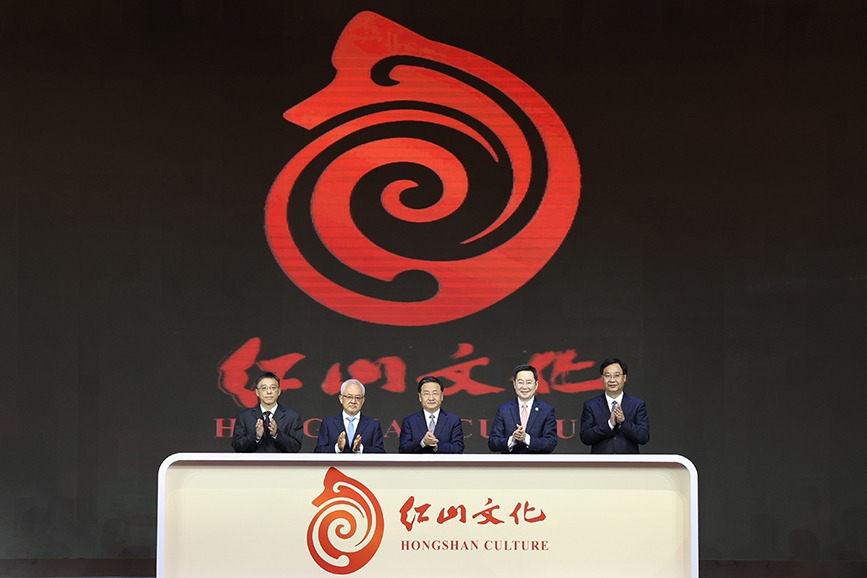Why US shouldn't wage trade war with China

The current economic and trade competition between China and the United States has entered a stalemate. After the new US administration took office last month, it once again brandished the tariff stick, attempting to extract more benefits and force China to make more concessions.
But will this approach really work?
About a century ago, the US used the tariff weapon during the Great Depression, which led to a global economic downturn and geopolitical instability. The US itself gained no benefits; it was only due to the windfall from World War II that the US economy managed to escape the quagmire of the trade war. Eight years ago, the US government tried to use the tariff weapon again to "Make America Great Again", but the result was soaring prices domestically, blocked manufacturing investment and disrupted global supply chains. In contrast, China, the object of trade sanctions, although it suffered certain losses in the early days of the trade war, the impact was not long term and it forced China to begin building a new domestic and international dual-cycle development pattern, promoting self-reliance and rapid transformation, and upgrading manufacturing.
From the changes seen in China-US trade data from 2016 to 2024 — preliminary calculations — total two-way trade value between China and the US rose from more than $520 billion in 2016 to more than $680 billion in 2024, showing an overall upward trend, with both imports and exports rising, save during the pandemic in 2019 and 2020. The US trade deficit with China had increased from more than $250 billion to more than $350 billion over the period, and the trade war and tariffs launched by Washington have proven to be of little use.
Why is wielding the tariff stick ineffective? This is because since the beginning of the Sino-US trade spat, three big changes have quietly taken place.
First, the expected returns of the US in the economic and trade arena have changed fundamentally. Economic and trade relations are not only a form of strategic competition, but also must involve the art of compromise. From the perspective of game theory, the expected profit value of the strategy adopted by the US has changed, and the pressure on China blindly focusing on economic and trade issues has seriously deviated from the rational Nash equilibrium. The marginal profit of coercion by means of tariffs is negative, which can only lead to spiraling retaliation and mutual self-harm, and the expected benefits are far fewer than the losses. In other words, the US strategy is ineffective, and what has been used before is no longer new.
Second, the structure of the modern global trading system has changed fundamentally. The global economic, trade and industrial chains and ecological systems established in the first two decades of this century have taken deep root. All links in the chain are built on the basis of comparative advantages and resource endowments. In such a systematically linked trade system, tariffs are already an outdated weapon, and there are many more effective ways and tools to pursue trade balances than tariffs, such as optimizing industrial chains and deepening mutual investment. Of course, these tools are also more complex and require more fine-tuning. As the biggest trading country, the US should have more "advanced" trade tools, and blindly using such simple and crude tariff sticks is increasingly ineffective.
Third, the balance of power between China and the US itself has changed fundamentally. China and the US are the world's two largest economies today, with a combined GDP of more than 40 percent of the global total. Combined imports of the two countries account for about 45 percent of the global tally, making them the two largest markets in the world. Ten years ago, the US was the most important market for China. However, a decade later, China is the most important market for other countries besides the US. China's all-round pursuit of high-quality development and high-level unilateral opening-up shows China's confidence and strength, and it also reflects China's vision and foresight. It can be said that the US' desire to contain China has been an unrealistic dream divorced from reality, and the time and situation in which it may have been possible to contain China have changed and passed. The more China is pressed, the stronger China will be. History has proven that the winner of a protracted trade war is bound to be China.
Generally speaking, we have to know that the first principle of Sino-US economic and trade relations is related to national interest, not national security. This is a reality that the US must be clear about. From this logical starting point, the relationship between China and the US is not a matter of zero-sum competition, but rather how to compete and cooperate more gracefully. No one can afford an economic war between the world's two largest trading powers, and the US should abandon the option of waging a trade war against China.
President Xi Jinping has pointed out that both China and the US "have broad common interests and vast room for cooperation", and they can become partners and friends, enabling each other's success, achieve common prosperity and benefit both countries and the world. Trump has also said that if China and the US strengthen cooperation, they will be able to address many of the world's important issues.
In fact, there are many areas where China and the US can cooperate in areas of economy and trade. For example, the two sides can work together to build a global industry chain that better serves the interests of all countries, jointly address global energy and food security problems, work together to conduct applied research on artificial intelligence, create more job opportunities for the two peoples through joint manufacturing and mutual investment cooperation, and jointly safeguard the security and stability of the US dollar/yuan exchange rate system.
In the coming four years, it will be China's 15th Five-Year Plan period (2026-30) and Trump's second term in office. It is crucially important for China and US to further strengthen the exchange of governance experience in macroeconomic policy coordination and development planning to enhance mutual understanding and ensure that the two countries can achieve "smart" competition and cooperation together.
The views do not necessarily reflect those of China Daily.
The writer is assistant dean of the China Institute of Development Planning, Tsinghua University.
Today's Top News
- Restraint and dialogue vital to de-escalate Israel-Iran crisis: Editorial flash
- 'No Kings' protests across US target Trump policies
- China criticizes US tariff narrative as 'one-sided, misleading'
- Lai throttling democracy, freedom in Taiwan
- Pilot programs to see speedy rollouts
- President urges learning from Chen Yun's legacy































